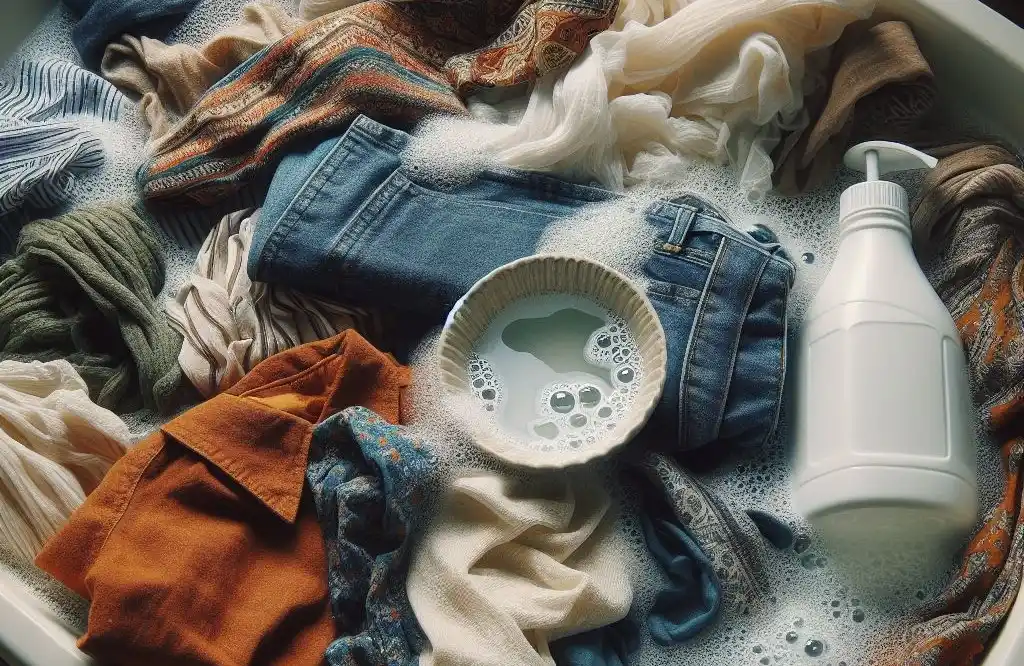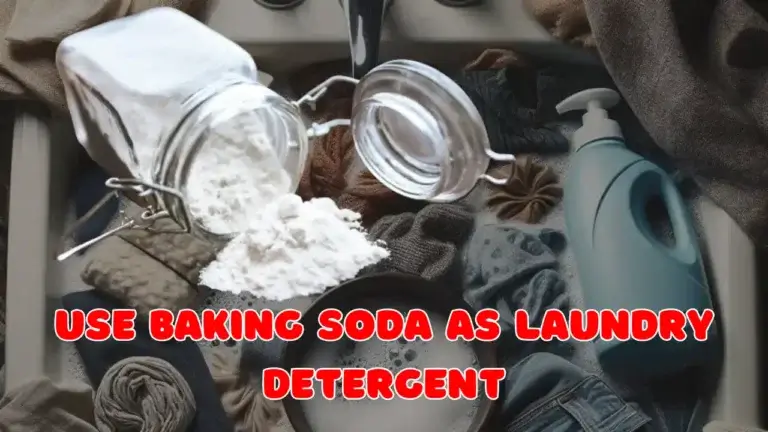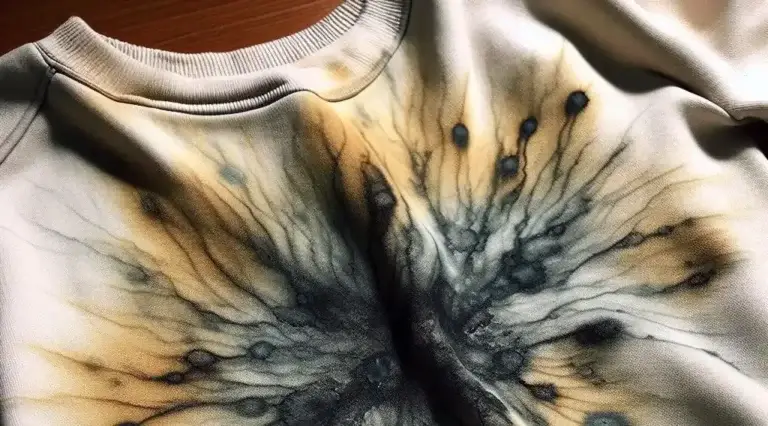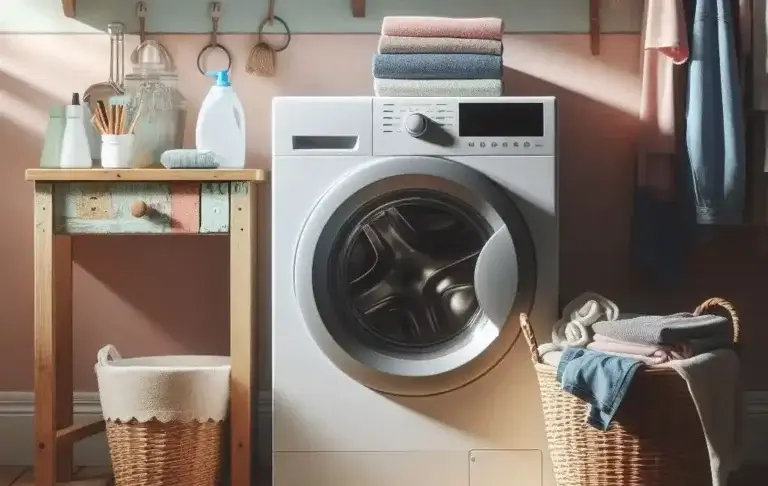Can I Wash Clothes With Dish Soap – Can You Really Use Dish Soap to Wash Your Clothes?
Can I wash clothes with dish soap is something many people wonder about when they run out of regular laundry detergent. Dish soap seems like it should work since it’s designed to cut through grease on dishes. However, there are a few reasons why you typically shouldn’t use dish soap in place of laundry detergent.
Table of Contents
Should You Use Dish Soap to Wash Clothes?
Laundry detergent and dish soap are designed for very different purposes. While dish soap excels at cutting grease and removing food residue from dishes, laundry detergent is specially formulated to get clothing clean.
Using the wrong type of soap can lead to issues like:
- Excess suds that overflow from washing machines
- Inability to fully rinse away soap residue
- Potential damage to fabrics
- Stiff, crunchy clothes due to leftover soap film
However, there are some exceptions where using small amounts of dish soap on laundry can be helpful:
- As a pre-treatment for extra-greasy stains
- In very small loads when you have no other option
- For hand-washing delicate items
Overall though, for most laundry loads, you’ll get the best results by using a detergent designed for washing clothes. Let’s look closer at why dish soap and laundry detergent are so different.
Why Dish Soap and Laundry Detergent Are Not Interchangeable
Dish soap and laundry detergent have important differences in their formulas that make them suited to their particular cleaning jobs. Understanding what these differences are can help explain why you typically shouldn’t use one instead of the other.
Designed to Clean Different Materials
Laundry detergent is specially designed to clean fabrics like cotton, wool, silk, and synthetic fibers. The ingredients clean effectively while remaining gentle enough not to damage delicate fabrics.
Dish soap, on the other hand, is designed specifically for cleaning ceramic, glass, metal, and plastic. The formulas often include harsher ingredients like bleach that are too abrasive for most fabric.
Cut Through Different Types of Grime
Laundry detergent is formulated to remove dirt, sweat, oils, and grime that build up on fabric. Ingredients like enzymes break down protein-based stains while surfactants helps lift dirt from cloth fibers.
Dish soap focuses more on removing food residue and grease from dishes. The formulas emphasize cutting through stubborn oily messes rather than general dirt and grime.
React Differently with Water
Laundry detergents are designed to interact with large volumes of water and rinse cleanly in wash cycles. Dish soap reacts much more strongly, forming thick suds even with small amounts of water.
Using a lot of dish soap in a washing machine can create an overflowing bubble bath! The soap may not rinse out fully, leaving behind a soapy residue.
Have Different pH Levels
Laundry detergents are formulated to have a neutral or slightly alkaline pH between 7 and 10. This helps lift dirt while remaining gentle on most fabrics.
Dish soaps have a more alkaline formula with a pH around 8 to 12 for more effective grease-cutting. These higher alkalinity levels can damage fabrics over time, causing wear and tearing.
As you can see, the differences between dish soap and laundry detergent formulas mean they are not interchangeable in most cases. Now let’s look at when you can—and when you should avoid—using dish soap on laundry.
When to Use Dish Soap on Laundry
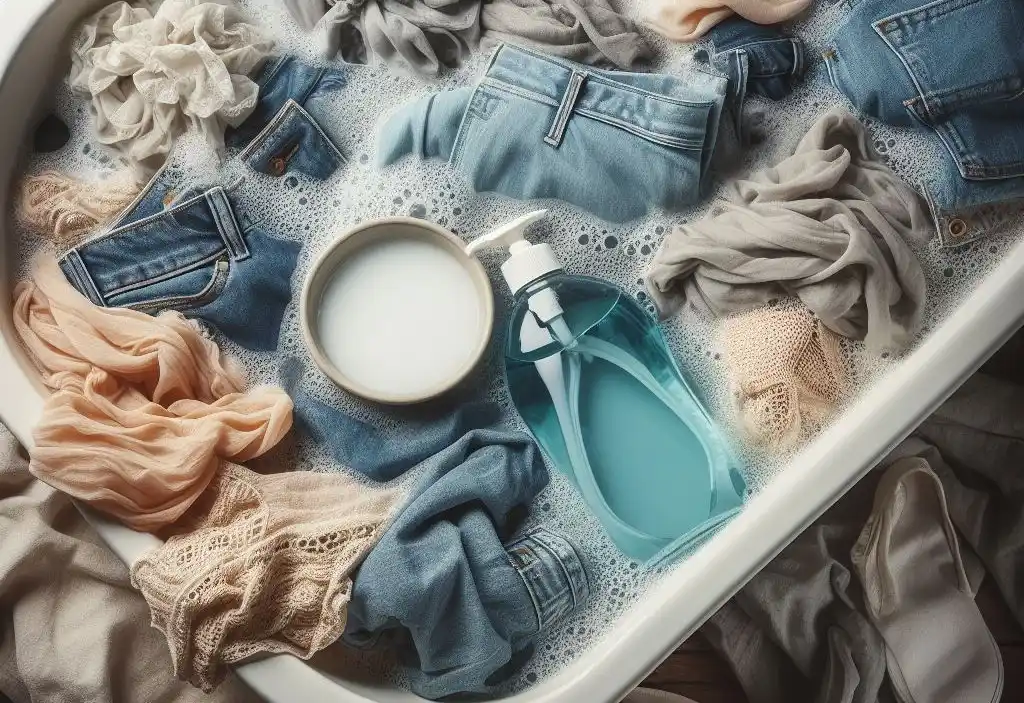
While dish soap isn’t a direct substitute for laundry detergent, there are some special cases when using small amounts of dish soap with laundry can be helpful:
1. Pre-Treating Grease Stains
If you have an extra-greasy stain on an article of clothing, applying some dish soap directly as a pre-treatment can help lift the grease before washing. Concentrate on only the stained area and avoid using dish soap all over.
Squirt a small amount of dish soap directly onto the greasy stain and let sit for 5-10 minutes. Then launder as usual with regular detergent, which will remove the dish soap residue.
2. Washing Delicates by Hand
For hand-washing extra-delicate fabrics like silks or wools, a tiny drop of mild dish soap in the wash water can help clean without harming fabrics. Avoid sudsy types of dish soaps and don’t soak the fabrics too long.
Swish very gently by hand and rinse thoroughly to remove all the soap. Then let delicates air dry to avoid damage from the heat and agitation of clothes dryers.
3. As an Emergency Backup for Very Small Laundry Loads
In a pinch when you have no laundry detergent at all, using a tiny bit of dish soap can get you through for very small loads. Use this method sparingly and only for lightweight items like underwear or socks that require little cleaning.
Add no more than 1-2 teaspoons of dish soap in an extra-large tub of water. Soak for 15 minutes then gently hand wash and rinse multiple times. Repeat the cycle if needed for moderately dirty clothes.
While dish soap works in the above laundry scenarios, there are also times it’s best to avoid using it with clothes.
When Not to Use Dish Soap on Laundry
Dish soap seems like an easy shortcut when you run out of regular laundry detergent. However, there are more cases when dish soap doesn’t work well or causes issues:
Using Dish Soap Instead of Laundry Detergent
It’s tempting to add a few squirts of dish soap when the laundry detergent runs out. Avoid the urge! The differences in sudsing, rinsing, pH levels, and more mean dish soap won’t properly clean your clothes.
You’ll likely end up with poorly washed laundry covered in soap residue. Stick to small hand-washed loads using very tiny amounts of dish soap rather than throwing it in the machine if regular detergent runs out.
Adding Too Much Dish Soap
It’s easy to get overzealous and add too much dish soap to your washing machine. Many types create mounds of thick suds that can overflow from the machine and create giant bubbles all over your laundry room!
Stick to 1-2 teaspoons at most in an extra-large load if you must use dish soap. Even then, suds may overflow which requires repeatedly rinsing clothes to remove.
Using Dish Soap on Large Machine Loads
While a tiny amount of dish soap might work for hand-washing small loads, don’t chance it on large machine loads. The agitation of the washer combined with lots of soap and water will create problematic suds.
Machine-washing also causes soap residue to penetrate deeper into fabric fibers where thorough rinsing is difficult. Stick to hand-washing only with tiny dish soap amounts.
Using Dish Soap on Delicate Fabrics
The harsher formulas of dish soap can damage delicate fabrics like silks, wools, spandex blends, and more. To play it safe, even hand-washing delicates only use the most gentle “clear” type dish soaps.
Look for ones specially formulated without dyes, bleach, acids or harsh ingredients. Test on a small hidden area first and rinse repeatedly by hand to remove all soap.
3 Reasons Dish Soap Is Risky for Most Laundry
To recap, there are three main risks that make dish soap problematic for most laundry cleaning:
1. Excess suds – Dish soap creates mounds of thick, stable suds compared to detergent, causing overflow issues in machines.
2. Incomplete rinsing – The stable suds and soap film cling to fabric making it nearly impossible to fully rinse cleaner.
3. Fabric damage – The relatively harsh formula of dish soap can wear, fade or tear delicate fabrics over time.
While dish soap might work fine if used sparingly on the occasional small hand-washed load, relying on it regularly for laundry is risky. The above three issues mean you’ll likely end up with damaged clothes covered in lingering soap gunk if you use dish soap improperly or excessively.
Can I Wash Clothes With Dish Soap – Ending the Debate
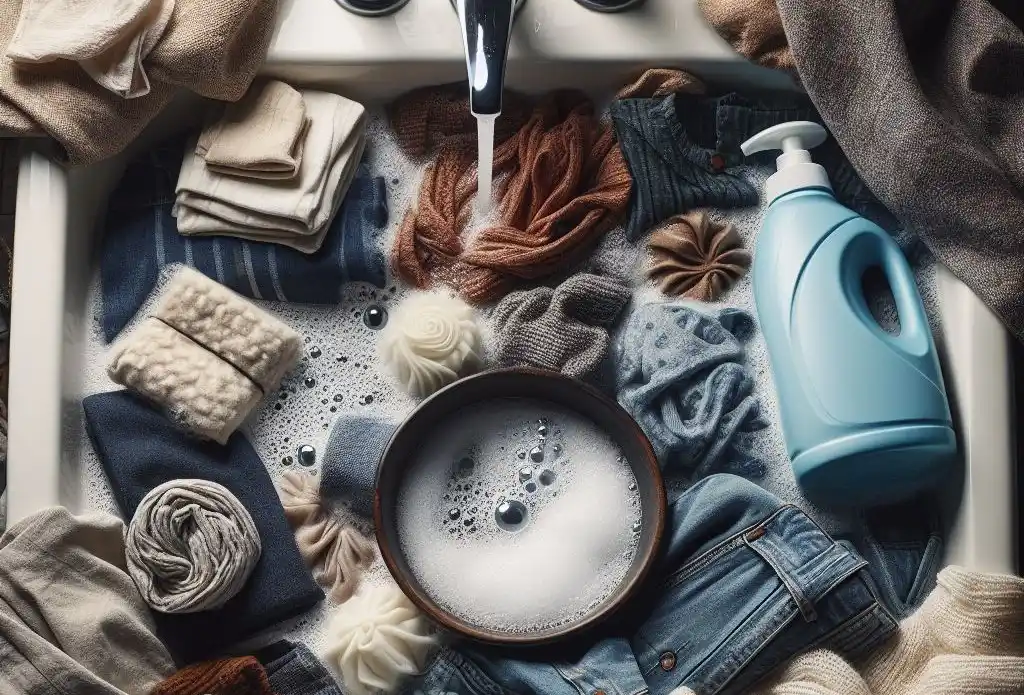
While you can technically wash clothes with dish soap in a pinch, it’s not the ideal solution and can have some drawbacks. Here’s a breakdown of the pros and cons to help you decide:
Pros:
- Effective stain removal: Dish soap excels at removing grease and oil-based stains, making it a good option for pre-treating oily spills or greasy clothes.
- Emergency substitute: If you’re truly out of laundry detergent, a small amount of dish soap can get you by for a single wash.
Cons:
- Harsh on fabrics: Dish soap is harsher on fabrics than laundry detergent, potentially causing fading, shrinkage, and weakening of fibers.
- Excessive suds: Dish soap creates a lot more suds than laundry detergent, which can overflow your washing machine or leave residue on your clothes.
- Ineffective cleaning: Dish soap isn’t designed for general cleaning of clothes like laundry detergent. It may not remove sweat, dirt, or other common stains effectively.
- Residue buildup: Dish soap residue can build up on clothes over time, causing them to feel stiff and uncomfortable.
Recommendations:
- Use sparingly: If you do use dish soap, use a very small amount (a couple of drops for hand-washing or a teaspoon for a washing machine load).
- Pre-treat stains: Apply dish soap directly to stains before washing, but remember to rinse it thoroughly before putting clothes in the machine.
- Use laundry detergent for regular washing: Stick to laundry detergent for the best overall cleaning and fabric care.
- Consider eco-friendly options: Some plant-based dish soaps are gentler on fabrics and the environment.
Ultimately, while using dish soap in a pinch won’t ruin your clothes immediately, it’s not a long-term solution. For the best results and to keep your clothes looking their best, stick to laundry detergent.
What Can i Use Instead of Laundry Detergent
Tired of harsh chemicals and overflowing suds? Ditch the laundry detergent and embrace a greener, gentler approach to clean clothes. Here are some top contenders for your washing machine:
1. Baking Soda: This kitchen staple tackles odors and gently cleanses. Add 1/2 cup to your wash for a fresh, residue-free experience.
2. White Vinegar: This acidic marvel cuts through grime and softens hard water. Use 1 cup in the rinse cycle for brighter colors and softer fabrics.
3. Borax: A natural mineral booster, borax tackles tough stains and deodorizes effectively. Add 1/4 cup to your wash (with gloves, as it can irritate skin).
4. Dish Soap (Emergency Only): For greasy stains, a tiny amount of dish soap can be a lifesaver. Use a few drops for hand-washing or a teaspoon in the machine, but avoid regular use as it can be harsh.
5. Wool Dryer Balls: These eco-friendly wonders soften clothes, reduce static, and speed up drying. Toss a few in your dryer for a gentle, chemical-free tumble.
Bonus Tips:
- Pre-treat stains with a baking soda paste for extra power.
- Sunlight naturally bleaches and disinfects clothes, plus it saves energy. Air-dry your clothes whenever possible.
- Wash in cold water for most loads. Hot water sets stains and uses more energy.
- Opt for natural fabrics like organic cotton, hemp, or linen, which are stain-resistant and require less washing.
By embracing these alternatives, you’ll enjoy clean clothes, a lighter environmental footprint, and even some cost savings. So ditch the harsh chemicals and let nature work its magic for a brighter, cleaner laundry day!
Remember: Experiment and find the laundry method that works best for you and your clothes!
Conclusion
Dish soap and laundry detergent are designed with very different ingredients and properties that suit them to their particular cleaning purposes. While laundry detergent is specially formulated to lift dirt and oils while remaining gentle on fabric, dish soap has a harsher formula focused on cutting grease.
This means dish soap is not well-suited as a laundry detergent substitute in most cases. However, using small amounts of dish soap sparingly in certain scenarios—like pre-treating grease stains or hand-washing delicates—can provide an effective cleaning boost.
In a true emergency when absolutely no laundry detergent is available, tiny amounts of dish soap can be used very sparingly to hand wash small loads. But the risks of excess suds, incomplete rinsing, and potential fabric damage means dish soap should never fully take the place of laundry detergent for regular clothes washing.
FAQs About Using Dish Soap on Laundry
Can I use dish soap in my washing machine?
You can use tiny amounts of dish soap to hand wash small loads of laundry. But avoid using more than 1-2 teaspoons in a washing machine even for very large loads. The excess suds can cause overflow issues.
What happens if I put too much dish soap in the washing machine?
Using excessive dish soap in a washing machine will create thick, overflowing suds. It also won’t properly rinse out, leaving behind soap residue that leads to stiff, crunchy clothes.
How much dish soap should I use for laundry?
At most, use only 1-2 teaspoons of dish soap in an extra-large tub of water for hand-washing tiny loads. Never exceed this small amount or suds and rinsing issues will occur even with hand-washing.
Can I mix dish soap and laundry detergent together?
It’s best not to mix dish soap and laundry detergent. Each is designed for specific cleaning purposes. Combining can lead to excess suds without properly rinsing clothes. Stick to using laundry detergent only for most washing machine loads.

